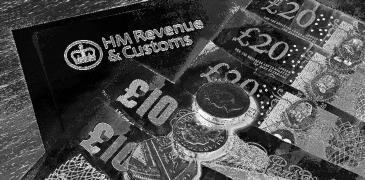British taxman seizes 3 NFTs for the first time in tax fraud probe

British tax authorities have seized three non-fungible tokens (NFTs) in a landmark tax fraud probe involving digital tokens. Her Majesty’s Revenue and Customs (HMRC) announced the seizure Monday as well as the arrest of three individuals alleged to have perpetrated the tax fraud using NFTs and digital assets.
Officials at HMRC revealed that they seized the NFTs while investigating a value-added tax (VAT) fraud case worth £1.4 million ($1.9 million), having obtained a court order to do so. The three NFTs are yet to be appraised. They also seized £5,000 ($6,700) in undisclosed digital assets.
The officials claimed that the three suspects whom they arrested attempted to claim back more VAT than they were owed by the British government, using “sophisticated methods to try to hide their identities including false and stolen identities.”
The three had also been using pre-paid unregistered mobile phones, false invoices, virtual private networks (VPNs), and pretended to engage in legitimate business activities.
Nick Sharp, the deputy director of economic crime at the HMRC, warned anyone who thinks they can use emerging technology to evade or avoid taxes. In a statement, Sharp said, “Our first seizure of a Non-Fungible Token serves as a warning to anyone who thinks they can use cryptoassets to hide money from HMRC. We constantly adapt to new technology to ensure we keep pace with how criminals and evaders look to conceal their assets.”
Jake Moore, an adviser at cybersecurity firm ESET, concurs. Speaking to The Guardian, Moore noted that the seizure shows just how quickly law enforcement is adapting to technological advancements.
“…with a fast-moving digital world where mistakes can be made, police forces are beginning to buck the trend in how they investigate digital crime, locate evidence and finally seize digital assets,” he told the newspaper.
Moore further observed that U.K. police are extra-motivated to investigate digital currency crime because it comes with added incentives. Due to the country’s Proceeds of Crime Act, the investigating police in any crime can request to keep half of all forfeited goods, with the other half going to the Home Office.
The use of NFTs for money laundering has become a great concern as the sector has exploded both in volume and value of the individual NFTs. According to blockchain analytics company Chainalysis and the U.S. Department of Treasury, criminals rely on two main ways to launder money through NFTs—wash trading and artificially increasing the value of NFTs as well as direct laundering the purchase of NFTs whose prices are inflated.
Watch: CoinGeek New York panel, Investigating Criminal Activity on the Blockchain
Source: Read Full Article
